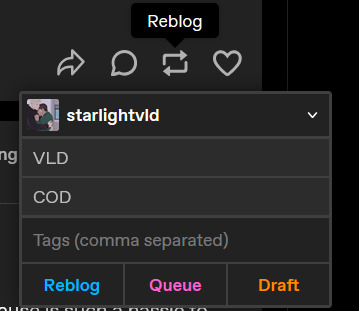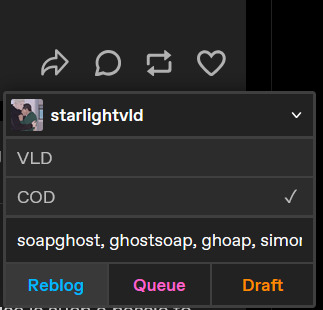#Comma Checker
Explore tagged Tumblr posts
Text
Comma Checker: Precision Punctuation for Perfect Writing
Ensure perfect punctuation with ZeroGPT’s Comma Checker. This free tool identifies misplaced or missing commas in essays, reports, and professional writing. Ideal for students and professionals, it ensures clarity and readability in your text. Enhance the quality of your writing effortlessly with ZeroGPT’s reliable Comma Checker. Start using it today for error-free punctuation at ZeroGPT.
0 notes
Text
If you hear screaming in the distance, it's me, locked in mortal combat with an AI checker.*
I'm losing.
*To be clear, I don't use AI; this is completely human written content that's failing.
#my job requires everyone run their work through the ai checker before submitting it#if it fails you have to edit it until it passes (even if you don't use ai)#which might not be so bad if like#there was a consistent answer on why certain things failed#it loves typos and hates commas and that's all i've got so far
5 notes
·
View notes
Text
We Need to Talk About AI Detectors
Over the past few weeks there have been two posts in particular that have come out against two authors in the community that have resulted in near witch hunts for one, and essentially driving the other off the internet from all the bullying and hate received. These posts were related to the potential use of AI in fanfiction, as well as using supposed “AI Detectors” to support their claims. With the help of friends, we have been able to look into the AI claims that were made against both The Silence and The Song and Ir Abelas, Da’ean.
We were curious about how and why these posts were being flagged with high levels of “AI Probability” when the authors have been adamant (either in chats or in public) that they have never used generative AI for their work. So we did the most logical thing, put on our detective caps, and rolled up our sleeves. We would like to note that we do not wish to have philosophical discussions, we wish to have transparency and honesty.
Spoilers: We found inaccuracies almost IMMEDIATELY.
Firstly, we looked into the weakness of AI detectors, and read through online posts where people voiced their frustrations with detectors. One thing that we noticed was that the common denominator was that well written articles were being flagged as “Likely AI”, particularly with Originality, and that the solution was to either “dumb them down” or to remove punctuation such as commas, which immediately improved the score, tipping the scale to “Likely Original”.
For the second step, we ran some of our own works through Originality AI checker–works that were made prior to the creation of AI and generative AI. However, after punctuation was removed, this magically changed from 50% likelihood of AI to 100% original work. Again, these works were from before the dawn of generative AI, and therefore could not have been created by AI. For fun, we even ran the first chapter of Harry Potter through it–a novel that is objectively without AI, which still did not come out with results stating 100% original work. We then removed almost all of the punctuation from it, and it actually improved the originality score by 3% (from 95% to 98%).
Personal fic, before and after:
Next step, we ran our own scans through Originality and Quillbot.This includes full chapters of Ir Abelas, Da’ean, both with and without punctuation in Originality, and excerpts in Quillbot. Interestingly, the excerpts in Quillbot pinged as “0% likely AI”, and that is without any removal of punctuation. Across the board, the removal of punctuation from the chapters caused an immediate and dramatic increase in the score, from “100% likely AI” to “96% likely Original”. We have found that the more grammatically correct a work was, the more likely it was to be flagged as “AI”, much like how the freelance writers were complaining about.
Chapter 1 of Ir Abelas, before and after:
Chapter 1 through Quillbot:

Chapter 45 of Ir Abelas, before and after:
Chapter 45 without commas or double hyphens:
Chapter 45 through Quillbot:

Even the Ai detection websites caution against this:


To Durgeapologist, Fangbanger3000, and friends: If you do actually read this, I hope you realize that your posts have done more harm than good to the community. You are correct that AI is a potential threat to creative spaces, but you have gone about addressing it in the worst possible way. By creating multiple posts across platforms with the intent of creating a negative perspective toward certain authors and their fictions rather than the use of AI as a whole—not to mention the counter-accusations with personal attacks rather than focusing on the issue at hand—you are creating an environment that fosters negativity, bullying, and division—none of which are directions to take a sustainable and healthy community. AI Detection is the Wild West right now. There is no way to determine if something written is AI through the use of algorithms, and it requires the use of human intervention and careful comparison to previous works to be within a certain level of certainty that it is AI. Our hope is that in the future, you will take time, step back, and consider all possible sides before causing a stir in the community like this.
#dragon age#solavellan#solrook#dreadrook#dragon age the veilguard#ai#ai critical#dragon age fanfiction#originality ai detector#quillbot#solas#lavellan#dragon age rook#organized bullying is not okay#be kind to one another
175 notes
·
View notes
Note
Hi! Do you have any posts already about differentiating between red tailed and red shouldered hawks? Tumblr’s search feature is garbage so I haven’t been able to find anything specific from searching your posts, but I can’t imagine that you haven’t posted anything about that before.
I actually don't think I have for those two in specific, I could've sworn I had a generic american buteos post but I couldn't find that either so! Just for you, RSHA and RTHA id tips! I don't really get into RTHA morphs in this because thats a Lot but HERE is a post I rambled abt morphs on for a bit that you can probably use in addition to this post to figure most of it out
In flight, Adults


RSHA on the left, RTHA on the right First and hardest to misinterpret, The tail: A RSHA will have very thick, dark tail bars, with the light tail bars being very thin. RTHA will, contrary to popular belief, not always have red tails. So if you see a red tail its definitely an RTHA, but if the tail isn't red its not necessarily not an RTHA. The real key is the tail barring: on a RTHA the dark bars will always be very thin, substantially thinner than the light tail bars, and not nearly as dark and prominent as the ones on the RSHA.
Patagial bars: The dark "shoulder" bars visible on the underwing are diagnostic of RTHA. RSHA will never have them, and while they may be very lightly marked on some morphs(and thus easier for inexperienced iders to misinterpret), RTHA always will.
Belly band: RTHA will have a clear, relatively unbarred throat with dark barring across the stomach, the belly band(this can also be subject to "lightly marked on pale morphs"). RSHA will have a fully barred breast and throat, red in adults, and no prominent belly band
MISC: RSHA will have thicker and more prominent dark barring on the flight feathers going all the way up to the underwing coverts. RTHA will have dark "commas" at the end of the carpal patches. RTHA are larger but this is basically impossible to scale from photos and is difficult in the field unless you've got two of them standing next to eachother.
Not really visible in the picture above, but RSHA will have transparent primary crescents sometimes visible in flight. You can actually see them better on the juve pictures down below, but it does apply to adults as well
In flight, juveniles





Juveniles can be a little trickier for a variety of reasons, and the exact look of juveniles can vary based on location
RSHA on top, RTHA on bottom
As you can see the RSHA still have fully barred breasts, no belly band, no patagials, substantially thicker dark tail bars(even if they are not as dark as in adults), and transparent primary crescents. I included a few morphs here to show variety, but you can see the RTHA have clear throats with belly bands, thinner tail barring, and visible patagial bars.
Perched, adults




RSHA top, RTHA bottom
All the above stuff still applies(esp re: tail and breast), but in addition RSHA have black and white barred and checkered outerwing coverts. RTHA will have a brown outerwing with no checkering and no prominent white barring, and a white scapular V of varying prominence
Perched, juvenile


RSHA, RTHA
Juve RSHA will have white barred secondaries and full breast streaking. RTHA will not have white barred secondaries.
89 notes
·
View notes
Note
Do you have any ways to check in a fanfic is written by AI? I have no trouble detect if a work email is written by AI but when it comes to fanfic, I just can't. English is my second language too. There are a bunch of fics of this one author on Wattpad that when I was reading, it feels weird? A little bit uncanny. I don't want to misunderstand them if it's just a me problem but I also hate everyone using AI to write so I'd appreciate a method or a tool to check. Thank you.
I don't have any solid indicators, however, if it feels off, you're likely noticing something off about the writing. The "em-dash" claim (that AI uses em dashes a lot) isn't really something to rely on.
(A better way to identify AI is an overuse of bullet lists, which, uh, I'm about to do, so here goes.)
Inconsistencies and repetition. This is a tough one right out of the gate, but all writers have a style. There's a turn of phrase, sentence structure, or common words that tend to pop up in their writing again and again. AI, on the other hand, does not stick to a distinctive style. It may repeat the same sentence structure over and over, or seem overly formerly written, especially in dialogue. The longer a document/fic, the more repetitive writing structures you will see.
Lack of depth or subtlety. Do the descriptions feel stilted or odd? Are the metaphors mixed together in a way that doesn't make sense (describing something dark using a comparison to something bright, odd comparisons that you've never heard before, etc)? Does it feel like the emotions are flat and not connecting to the story? All of these things could be things to watch out for.
Perfect grammar. I'm still finding grammatical errors in stories I wrote years ago. No amount of spellcheck will save me from a typo. AI never has that problem, but it also won't use punctuation to make a point (like using commas to indicate a speech pattern).
Updated too damn fast. If someone is uploading thousands of words a day, there's no way they're writing the story themselves. Massive, rapid-fire updates are something to keep an eye out for.
Now, all of these things alone do not indicate someone is using AI. Everyone's written a bad metaphor before, some people are great at grammar, and folks new to writing may have an inconsistent writing style. As you have noticed, speaking English as a second language makes folks overly prone to being flagged as using AI, which is also not helpful.
There's also no perfect AI checker, as most tend to throw up false positives. But the longer the story, the more indicators will pop up. Scenes might get repetitive, or sex scenes start to feel the same.
I also, unfortunately, don't have any advice for what to do if you feel like AI is being used to write fanfiction. You certainly don't want to falsely accuse someone of using it publicly (though I'd reach out to friends to see if they have the same suspicions). Ultimately, the best case scenario is that people will identify when they use AI (there's a whole tag for it on AO3), but I don't know how common that will become. In a pinch, when I suspect something has been plagiarized or written by AI, I shift the writer to my "do not read" pile and move on.
130 notes
·
View notes
Text
Easy tagging, reblog/queue-ing, and more
Lately, I've seen some posts complaining about easily fixable issues on Tumblr, so I thought I'd pass on knowledge that used to be common but seems to have been lost along the way.
Xkit is your friend. Specifically, XKit Rewritten, the browser extension.
Download it to your browser, and you can get rid of ads, turn on the mutual checker, timestamps, quick reblog, and quick tags ... and that's just for a start. If you're not familiar with extensions, just go "Add-ons and themes" in the Firefox menu and search in the top bar for "Xkit Rewritten." (And yes, it's in Chrome, too.)
Quick Reblogs & Quick Tags - a match made in internet heaven
Quick Reblogs and Quick Tags work in tandem to give you the easiest set up for reblogging/queueing posts with appropriate tags. It requires setting up "tag bundles" at the beginning, but it's a simple thing. Just give the bundle a title and then list whatever tags you want under the title, separated by commas. Click "Add Bundle" when you're done.

You can make as many bundles as you want.
This pairs nicely with Quick Reblog in that you can add these bundles from the box that appears when you hover over the reblog button on ANY post. Just click the tag bundle(s) you want to apply, add any additional/specific tags if you want (or you can also just write your own tags into the "Tags" section without using a bundle at all) and then click "reblog" or "queue" for a one click solution without ever leaving your dashboard.


You can combine bundles, too. So if you're an artist/writer, you could make a generic bundle for your general art or writing tags, then make specific ship/fandom bundles and combine them based on what you're posting. I tend to pick a ship and stick with it for years, so I don't really need that, but for all you extra-awesome multi-fandom people, this can be a huge time saver.
There are a ton of other options with XKit, too, but these are the ones I find most useful. I hope this helps people feel more confident using the site and also tagging posts!
#tumblr made easy#tumblr fixes#xkit rewritten#tagging and reblogging#the ancient tumblr lore#OG Starlight
96 notes
·
View notes
Note
hey, ghoul! idk if you know, but quick questie. Do you know if text to speech tools steal the text to train writing ai? Grammar checkers are sketching me out too, its stressful out here. tysm
Language modeling software (lms) has been around since before Ai scraping and has been "trained" on just about everything, but most importantly it has been train on and by human interaction and intervention.
Something like a screen reader (an accessibility tool) is not likely to be stealing text to train writing Ai. It isn't an intelligent machine it is solely reading aloud the material fed through it and has been around for much longer than Ai because it is an accessibility tool.
Grammar and spelling checkers however are constantly training themselves based on human writing. They are formatted initially with the rules and spellings that they're supposed to have, but as more people use a spell/grammar checker it begins to go with what the most people are using for spelling/grammar. So if a lot of people spell something wrong the first try the spell checker might start thinking that's how its spelled, or if a lot of people use a specific kind of comma splice, or if you forget an apostrophe a lot or whatever. Your spell/grammar checker is constantly learning from you and adjusting itself to you. My spell check on my phone no longer autocorrects im to I'm because I wasnt typing out the correct "I'm" so it assumes im is a word now.
They are not smart robots, but most of them have a way to turn off ai scraping.
21 notes
·
View notes
Note
yes maybe any rules you follow while writing or what you think is important? would really help and I bet there's lots of ppl who wanna know
ok so I’ve put together a few but these are just my opinions. I’m not a fan of writing rules, so keep in mind that these are just my personal guidelines that I’ve learned over years and that always have exceptions. The most important thing is to have fun and to develop a feeling for what works and that’s something you only get through experience. My first fanfiction was crap but I had a blast writing it anyway. Hope this helps, lmk if you have questions 💕
Beginner:
Formatting. This is about reading economy for the reader. get rid of empty lines (there’s shortcuts in word for that). Use paragraphs (there’s info online when to start a new one). Use quotation marks (“” or »«, don’t get fancy). Punctuation (em vs en dash, comma goes before the quotation mark etc.). No caps lock. Use bold or italic for emphasis.
Consistency. choose whatever narrator you prefer, the tense to write in and the pov—stick to it throughout. See also: “head hopping”
Grammar & spelling. Doesn’t have to be perfect but just using a simple spell checker helps get rid of major issues.
Advanced:
in medias res. start as late as possible in the scene and leave at the earliest point. skip the simple stuff like waking up or falling asleep unless you have a reason to. This keeps the tension up.
always say less than necessary. give as little info in dialogue as possible. Usually I’ll write what I want the character to say and then go over it again and cut it to the bare minimum. People never say what they actually mean. I aim for not more than 2-3 sentences per direct speech section.
Avoid info dumping. Don’t have a character tell you their backstory. Show how it affects them today and drop subtle hints at it. Use environmental storytelling. When describing environment, sprinkle details throughout instead of putting them in a paragraph and try to always relate them to the character. Like what do they think of the carpet? Do they have a memory attached to it? Maybe the forest seems dark and lost to them because they have been kidnapped and feel lost. Stuff like that.
Rule of 3. This is for foreshadowing etc. once you mention something 3 times for some reason it gives the reader a sense of consistency and “roundness”. Referencing something that happened earlier in the story also helps make the world feel more real.
Avoid head hopping. Don’t switch from one character’s pov to the other’s in the same paragraph. Better even avoid it in the same scene or chapter. It’s hard to follow.
Overused phrases. “She released a breath she didn’t know she was holding” and more (you’ll find lists of that online).
Very niche:
Remove the filter. Whenever you’re tempted to write words like “saw”, “felt”, “heard” or other words pertaining to senses, see if you can rephrase the sentence. Just describe the thing directly. Ex: instead of writing “I looked at the clock.” write -> “The old fashioned clock on the wall showed it was already past lunch time.”
Said is not dead. Don’t overdo it with the dialogue tags. Said is a word that the reader skips over and doesn’t notice. It focuses the attention on the story rather than the writing, so no need to show off your vocab. Again, this is a case of do everything in measures. It’s not forbidden to use other dialogue tags on occasion—dosage is key!
Dosing adverbs (words ending in -ly). Same thing. Whenever I use an adverb in my writing followed by a verb, I try to think about whether there is a stronger verb to use so I won’t need the adverb. But sometimes it’s perfectly okay to use it. Like when you try to show a contrast. “She smiled happily” is redundant because a smile usually indicates happiness and you could use “she beamed” instead. But if you write “she smiled sadly” it’s an oxymoron and therefore a strong use of an adverb.
Metaphors/purple prose. Good and necessary but don’t overdo it. Rule of thumb for me is: use metaphors and similes etc to describe sensory input but keep it simple when describing actions. No need to write “she removed her elusive presence from the limited space of existence surrounding us.” Instead of “she left the room.”
A good scene for me ends in a different place (emotionally or/and physically) than it began.
Character voice. study the way a character speaks and try to mirror that in your writing. What kind of vocab do they use? Where are they from? Do they swear? What terms of endearment do they use? Do they speak more formal or informal or even slang? Where do they come from?
My favourite story structure: chiastic or reversed chiastic. Not gonna explain it here, if you’re interested you can look it up. This is just a personal favourite.
31 notes
·
View notes
Text
It's time to edit the other 1k~ statement of intent. So far, lots of red (bc it's the first edit) but also I'm very annoyed at Word for trying to make me add commas where there shouldn't be
im into like the second proper edit of this 2.8k memoir right and, I just really didn't wanna do it. In my mind I was like, oh I won't change that much drastically. I'll just read it to appease my brain, so I can pretend I did the editing.
Cue me ten minutes later with an entire page where I rearranged an entire like three paragraphs.
#word's grammar checker isn't as good as it used to be i stg#i have a Person and I sentence and It keeps being like#oh you should do Person COMMA and I and I'm like no that's fucking wrong#i might be a dumbass but im like 99% sure that doesn't work in context#look it's ridiculous enough of ME. the number one comma user#to be saying no to a comma. but like. im right
3 notes
·
View notes
Text
I swear to all the skies above this grammar checker keeps telling me I need a comma here and then I don't need a comma in the same spot and then I need it again. IT GETS A SEMICOLON NOW!
9 notes
·
View notes
Text
The Ultimate Guide to Grammar Checkers: Enhance Your Writing Today
Good grammar is the cornerstone of effective communication. Whether you're crafting a professional email, an academic essay, or a casual social media post, ensuring your text is free from grammatical errors makes all the difference. Luckily, grammar checkers are here to help. If you're looking for tools that can serve as a Comma Checker, offer correct grammar checks, or even correct your grammar online, you're in the right place.

Why Use Grammar Checkers?
Grammar mistakes can distract readers and diminish the impact of your writing. Here’s why grammar tools are essential:
Clarity: Correct grammar ensures your message is clear and easy to understand.
Professionalism: Writing free from errors demonstrates attention to detail and credibility.
Time-Saving: Tools can quickly identify errors that might take you hours to spot manually.
Learning Opportunity: Many tools explain corrections, helping you learn and grow as a writer.
Top Tools for Grammar Checking
Several free and premium tools are designed to help you check grammar online, fix commas, and refine your text. Let’s explore some of the best options.
1. Grammarly
Grammarly is a top choice for anyone looking to correct grammar online. It offers real-time suggestions for grammar, punctuation, style, and clarity.
Features:
Checks grammar, punctuation, and spelling.
Highlights unnecessary commas and missing ones.
Advanced tone and style suggestions (premium feature).
Integrations with browsers and word processors.
Why use it: Perfect for professionals, students, and everyday writers who want polished text quickly.
2. ProWritingAid
ProWritingAid is ideal for writers who want more than just a grammar check. It provides in-depth insights into sentence structure, readability, and style.
Features:
Comma placement and grammar corrections.
Detailed style and consistency reports.
Vocabulary enhancement suggestions.
Integrates with Google Docs and Microsoft Word.
Why use it: Great for authors, academics, and anyone working on long-form content.
3. Hemingway Editor
The Hemingway Editor emphasizes simplicity and clarity, making it a favorite for content creators and bloggers.
Features:
Highlights complex sentences and offers simpler alternatives.
Checks for passive voice and readability issues.
Limited grammar and punctuation checking.
Why use it: Perfect for improving readability and trimming overly complex sentences.
4. Ginger Software
Ginger Software is a robust tool for anyone who wants to correct grammar online while improving overall writing skills.
Features:
Grammar, spelling, and punctuation corrections.
Sentence rephrasing for improved clarity.
Built-in translation tool for multilingual users.
Why use it: Ideal for non-native English speakers and casual writers.
5. Slick Write
Slick Write offers detailed analysis for grammar and punctuation while also focusing on style and structure.
Features:
Real-time grammar and punctuation checks.
Style and structure improvement suggestions.
Word variety and readability analysis.
Why use it: Suitable for students and professionals who want to refine their writing.
Key Features to Look for in a Grammar Checker
When selecting a tool to correct grammar and check for commas, consider these features:
Ease of Use: A user-friendly interface saves time and effort.
Comprehensive Checks: Look for tools that detect grammatical, punctuation, and stylistic errors.
Real-Time Feedback: Instant suggestions make editing smoother.
Customizability: Some tools allow you to set style preferences, like formal or casual tone.
Learning Tools: Tools that explain corrections can help you improve your skills over time.
Common Grammar Issues Fixed by Checkers
Here are some common mistakes grammar tools can help with:
1. Comma Errors
Commas are tricky, and their misuse can change the meaning of a sentence. For example:
Incorrect: Let’s eat Grandma.
Correct: Let’s eat, Grandma. A comma checker ensures commas are placed correctly for better clarity.
2. Subject-Verb Agreement
Grammar checkers help ensure verbs agree with their subjects in number and tense.
Incorrect: She go to the store.
Correct: She goes to the store.
3. Spelling and Homophones
Many tools catch spelling mistakes and misuse of homophones like "their," "there," and "they're."
4. Sentence Structure
Suggestions for breaking up run-on sentences or connecting fragments improve readability.
How to Use Grammar Checkers Effectively
Paste Your Text: Copy your text into the tool. Many platforms support uploads of Word and PDF documents.
Review Suggestions: Go through the corrections carefully. While these tools are helpful, they’re not perfect—some suggestions might not fit your context.
Apply Changes: Incorporate the necessary corrections into your work.
Learn from Mistakes: Take note of recurring errors to avoid them in the future.
Why ZeroGPT Is Your Go-To Solution
For those seeking a free online grammar checker and advanced text analysis, ZeroGPT offers a comprehensive solution. Not only does it detect grammatical errors, but it also provides advanced tools for style enhancement and plagiarism detection.
Key Features:
Accurate grammar and punctuation checking.
Built-in AI detection tools to ensure originality.
Free access for basic checks, making it accessible to all.
Visit ZeroGPT today to explore how it can transform your writing!
Conclusion
In the digital age, grammar checkers are indispensable tools for anyone who writes. Whether you need a comma checker, want to Correct Grammar Online, or need to check your essay free, these tools are here to help. Platforms like Grammarly, ProWritingAid, and ZeroGPT not only enhance your writing but also help you learn and grow as a communicator. Take advantage of these tools today and ensure your writing is always professional, polished, and impactful.
0 notes
Text
fuck these stupid ai grammar checkers... dont tell me to remove my 40 unnecessary commas. I know what im doing
37 notes
·
View notes
Text
Round Table Discussion: Grammar Pet Peeves
Today, March 4th, is National Grammar Day! Last year, we celebrated with six of our favorite grammar quirks. This year, we’re going to the other end of the spectrum: we had a conversation with our editors and blog contributors about grammar things we hate. They may be technically correct, but that doesn’t mean they don’t make us crazy. Eighteen people, many anonymous, contributed to this discussion.
Dangling Modifiers
boneturtle: Dangling modifiers, hands down. Even when I can decipher what the writer meant based on context, it viscerally hurts me every time. When I am editing I have to stand up and take a lap around my apartment when I hit a dangling modifier. Remind myself that I am here to help. Learn more about dangling modifiers.
Commas
anonymous: Commas are not difficult! Commas end phrases. Full stop. That’s all they do. Is a phrase necessary to the grammatical coherence of the sentence? if the answer is yes, no commas because that phrase hasn’t ended. If the answer is no, commas! comma hug that bish if it’s the middle of a sentence. The difference between grammatical and informational is whether or not the sentence makes sense without the phrase.
Examples:
The man who ordered the six double anchovy pizzas claims to have a dolphin in his pool.
You need “who ordered the six double anchovy pizzas” because you need to identify which man you’re talking about. The world is full of many men.
The ancient Buick, which Madeleine purchased via Craigslist, belched black smoke whenever she pressed the accelerator.
We don’t need to know how Madeleine purchased the car for the sentence to make sense. You don’t even meed “Madeleine” for the grammar to make sense. Therefore, hug that phrase!
(a comma on each side of the phrase) or give it a dramatic send off with a comma and an end punctuation. (i could go into conjunctions, too, but those are a little more complex, and if you were taught them properly, i understand not getting the comma use 😂 )
Prepositions at the End of Sentences
Tris Lawrence: There was a dictionary (Merriam-Webster? Oxford? idek) that posted recently on social media about how the rule about not ending a sentence with a preposition came from English scholars trying to make English line up with Latin, and that it’s totally okay to do it… and I’m just wanting to point to it to yell THIS because uhhh trying to rework sentences to not end in a preposition often creates clunky awkward things (my opinion, I recognize this).
D. V. Morse: Ending sentences/clauses with a preposition. Well, not doing that is supposed to be the rule, but depending on the sentence, it can be a convoluted mess to try and avoid it. Winston Churchill famously told someone off after they “caught” him breaking that rule, saying, “This is the type of arrant pedantry up with which I will not put.” (Yes, I had to look that up.)
Pronoun Confusion
anonymous: I hate playing the pronoun game when reading. I hate it in life when someone comes up to me and tells me a story involving 2 people of the same pronouns and stops using names halfway through, and I hate it while reading too. Nothing makes me fall out of scene more if I don’t know who just did/said what. Use names. That’s why we have them.
Nina Waters: epithets. If I know the characters name…why? Also, when people use “you” in third person writing. There are times I’ll allow it as an editor/times when I do think it’s at least acceptable but not gonna lie, I absolutely hate it.
anonymous: My pet peeve … I read hundreds of essays in a given month for work, plus a whole lot of fanfic for fun. A rising issue that I have noticed in both places is incomplete sentences (lacking subjects, typically). I think it’s because people rely on Google’s grammar checker to tell them if something is wrong and…Google doesn’t check for that apparently. I’m increasingly convinced that my high schoolers simply weren’t taught sentence structure, because when I ask them to fix it they almost universally say some variant of “I don’t understand what you’re asking me to do.” Therefore, it might be punching down a little to complain about it. I’m not sure. It does drive me nuts though. Lol
“Would Of”
Neo Scarlett: Not quite sure if that falls under grammar, but I hate hate hate when people use “should of” instead of should’ve. Or “would of.” It just makes my toe nails curl up because it may sound right, but it looks wrong and is wrong.
Semi-Colons
Shea Sullivan: I saw a list punctuated by semicolons recently and that made me froth at the mouth a bit.
anonymous: I think any editor who’s worked with me knows that I have a pet peeve about using colons or semi-colons in dialogue. Or really, any punctuation mark that I don’t think people can actually pronounce. Semicolons can live anywhere that I don’t have to imagine a character actually pronouncing them.
English isn’t Dumb!
theirprofoundbond: As a former linguistics student, it bugs me a lot when people say that English is a dumb or stupid language because it has borrowed from so many languages. What people mean when they say this is, “English can be really difficult (even for native speakers).” But I wish people would say that, instead of “it’s dumb/stupid.” Languages are living things. Like other living things, they adapt and evolve. English is basically a beautiful, delightful platypus. Let it be a platypus.
Dei Walker: I remember seeing somewhere that English has four types of rules (I’m trying to find the citation today) and everyone conflates them. And I guess my pet peeve is that everyone treats them equally when they’re NOT. There are rules but not all of them are the same – there’s a difference between “adjectives precede nouns” (big truck, not *truck big) and “don’t split infinitives” (which is arbitrary).
And, because we couldn’t resist, here are some of our favorite things, because when we asked for pet peeves…some people still shared things they loved instead of things they hated.
Oxford Comma
Terra P. Waters: I really really love the Oxford comma.
boneturtle: me: [in kindergarten, using oxford comma]
teacher: no, we don’t add a comma between the last two objects in a list.
me: that’s illogical and incorrect.
anonymous: I will forever appreciate my second grade teacher’s explanation of Oxford comma use: Some sentences are harder to understand if you don’t use it, but no sentence will ever be harder to understand because you do use it. Preach, Mrs. D
anonymous: I am definitely Team Oxford Comma. I even have a bumper sticker which says so
Other Favorites
Shea Sullivan: I adore the emdash, to every editor’s chagrin.
Shadaras: zeugmas! I think they’re super cool!
Shea Sullivan and Hermit: I use sentence fragments a lot. Fragments my beloved.
English Grammar vs. Grammar in Other Languages
anonymous: so in English my favourite thing is the parallel Latin and Saxon registers because of how that affects grammar, but in Japanese my favourite grammatical thing is the use of an actual sound at the end of the sentence to denote a question, as opposed to how in English we use intonation? Also how in Japanese the sentence structure requires reasoning first and action second in terms of clauses. So rather than go “let’s go to the cinema because it’s raining and I’m cold,” you’d go “because it’s raining and I’m cold, let’s go to the cinema.” (My least favourite thing is the lack of spaces between words in the written form but that’s purely because I find that level of continuous letters intimidating to translate.)
I also love how Japanglish in the foreign communities in Japan starts to develop its own grammatical structure as a way of situating yourself in this space between the two languages. It’s used as a call-sign of belonging to that specific community, because in order to make some of the jokes and consciously break the rules of English or Japanese grammar and/or choose to obey one or the other, you’re basically displaying your control over both/knowledge of them. Like, the foreign community in Japan is often a disparate group of people with multiple different native languages who are relying on their knowledge of at least one non-native language but often two to signify their status in the group as Also An Outsider and I think that’s really interesting.
Nina Waters: Chinese and Japanese both drop subjects, and Chinese doesn’t have like… a/the… Japanese doesn’t have a future tense… Chinese kinda sorta doesn’t have tenses at all… (these are not pet peeves, btw, I love how learning a language with such different ways of approaching these things reshapes my brain). Chinese also doesn’t really have yes or no.
There’s a joke somewhere on Tumblr about that, though I actually think it’s about using “a” versus “the,” like, someone was giving a Russian speaker a hard time after they said “get in car” and they were like “only you English speakers are dumb enough to feel this is essential why would I be talking about getting into any random car of course I mean our car wtf.”
anonymous: on the subject of other languages, epithets are also something that happen differently in other languages. In French repeating a word (names included, and sometimes even pronouns) is considered bad writing. As in, way more than in English. Going by how grating the English translation of the Witcher books was to me when the French one was fine, I’d say it’s the same with Polish, at least. It’s also very interesting how brains adapt to writing styles in other languages.
What are some of your favorite and least favorite grammar quirks, in English or in the language of your choice?
#national grammar day#duck prints press#writing advice#grammar#writeblr#writing pet peeves#grammar pet peeves
62 notes
·
View notes
Note
Maybe this is by a very, very long shot, but do you have any resources, techniques, or any sort of info on how to autocorrect in French? My very important french exit exam is coming up and while I have perfect scores in content and organization, I lose all my points in language.
I make so, so many anglicismes, erreurs de punctuation, de conjugaison. It causes me a lot of great distress. I'm genuinely not able to see errors in my writing, even when they are clearly there. I know I need to practice, but I don't even know how to practice actually making minimal mistakes in a long, handwritten essay.
I’m so sorry for not getting back to this more quickly; I hope that I’m not answering too late!
Stop thinking of such little errors as random mistakes. They’re not at all random; they’re patterns, and diagnosable patterns at that. It’s very easy to view arbitrary errors that slip under the radar in proofreading as evidence of hopeless failure, but they’re actually just symptoms of a repeated misunderstanding. I recommend starting a little personal error corpus: take 3–4 of your past essays, which have been corrected by a tutor or educated native speaker, and create a spreadsheet with 3 columns:
Error: copy the exact sentence, with the error highlighted or bolded in some way.
Why it’s wrong: a brief grammatical explanation, taken from a proper grammar book but summarised in your own words, that you understand.
Correct version: the sentence rewritten so as to now be grammatically correct.
Then, go through this little spreadsheet and begin to highlight your personal patterns. Perhaps you keep using à or pour after chercher; maybe you consistently mess up agreement in passé composé with être. Whatever it is, highlight it. It’s more than likely that you’ll find you’re not actually ‘bad at French grammar’, you just have under a dozen consistent bugs in your mental code. Once you identify them, you can tackle them head-on.
You’re preparing for a handwritten exam. These sorts of things can feel cruelly archaic nowadays (talk to the girl who has taken all of her university exams to date by hand 😭), but they can actually be a blessing in disguise; typing can mask our errors with autocorrect and constant backspacing, whilst handwriting forces you to commit to a sentence and a grammatical decision. I highly recommend you make the most of that: write timed paragraphs, every single day, by hand, on a real topic—maybe summarising an article you’ve just read, or a discursive piece on les réseaux sociaux or le patrimoine or another of those subjects examiners love—and then, after 15–20 minutes or so of handwriting, retype the paragraph into a doc. This is the point at which you can start editing. I recommend BonPatron or Language Tool, but you could also just use Grammarly in French; either way, run your paragraph through a grammar checker to scan for the most obvious errors. Then, print it out, and hand-annotate your own errors, with your little personal corpus and most common errors in mind, and write your own comments in the margins. This teaches your brain to notice patterns of sloppiness and flag them in real time. You’ll find that your hand starts to hesitate slightly before the word à or de, and that hesitation is your brain rewiring itself.
Try to read like a copy-editor. Your ask tells me that you’re already strong in content and structure, so I could hazard a guess that you read a lot, which is, for the record, excellent for language acquisition! Now, though, I’d suggest reading a little differently; rather than reading novels and articles in French to absorb vocabulary, start reading more like a copy-editor. Take a short, well-written article from somewhere like Le Figaro or Le Point, and go at it with full syntactical analysis. Highlight every comma and subordinate clause, circle and label each verb tense, write out full S-V-O diagrams for particularly complex sentences so that your brain can understand the mechanics. Ask yourself questions: why this structure? Why this punctuation? You could even go full syntactician and analyse it like I did my passages for my Latin Language paper—whatever works for you. Then, try rewriting the first paragraph from memory, and compare it to the original. What did you miss? What did you simplify?
Practise micro-repetition exercises. This is a trick mostly used in classical language paedagogy; I learnt it in Latin and Greek, but it would definitely work for French, too. Choose one short, typical, basic sentence that contains a grammatical structure you struggle with. For instance:
Elle est allée à la boulangerie chercher du pain, qu’elle avait oublié d’acheter la veille.
Copy it by hand ten times, slowly, then cover it, and try to write it from memory.
Now, tweak it, just slightly, each time. Change the subject to ils. Change qu’elle avait oublié to qu’elle oubliera. Make it negative: Elle n’est pas allée … Have fun with switching the sentence structure, playing with the syntax, rephrasing and placing in different verb tenses. This way, you’re not simply memorising a single sentence, but practising how the logic of French grammar really behaves, so that you’ll be able to apply the very same logic to a different sentence in the future.
I think that, given just a few weeks of really militant, methodical practice, in which you forgive yourself for errors but don’t shy away from facing them directly, you’ll be so surprised at just how much your command of French has improved. If you like, you’re welcome to send me a paragraph, and I’ll walk you through how I’d correct it, but honestly, I think you have the drive and ability already—it’s just not always that easy to know how to tackle the little things without some guidance from someone who has struggled with much the same thing! Courage, anon, and let me know how your exam goes 💕
7 notes
·
View notes
Text
actually my villain arc is gonna be caused by the fact that i can't work as a writing tutor because i had a rough first semester in terms of attendance/turning things in while i know a girl who works in the writing center who cant do there/their/they're or too/to and i regularly see her misuse commas and say things like "sun set" instead of sunset . i dont necessarily think i should be allowed to work in the writing center because i did in fact get a D in english 101 but i think that if you're gonna be a tutor there needs to be some sort of idfk writing test where they look at ur raw ability to use words and grammar correctly without the help of a grammar checker or peer review because in the case of working as a tutor you are the grammar checker/peer review. im balls at turning in assignments all time but my prof can vouch that im real good at the actual writing part and this girl regularly makes me tweak. she texts like shes writing missives but she;s fucking ass at it it drives me BONKERS
7 notes
·
View notes
Note
Your writing is so clearly ai generated it’s almost funny
i’ve read a lot of people’s work and they look mighty similar to mine bro. honestly you could grab anyone’s fic they’ve published on this app and put it through an ai checker and it will still ‘detect’ something
i’ve also ran a few successful fanfic accounts in the past before strictly making this rockstar one. this is like the first time i’m hearing about this
not only that but i have taken a whole writing class my entire time throughout high school, that’s 4 years of time getting to learn and advance from a class that contributes to my hobbies.
i’ve also barely posted on this account, i would assume anyone who used ai for writing would be popping out their fics or whatever they post almost too consistently . but NO i have been busy and have just now got the time to post out two more ,i still have about 3 drafts and 7 more requests to get to, i clearly cannot finish those in just one night since i still do not have the time to write them today or tomorrow.
i am also NOT wasting my time on grammar or punctuation on this response to set a point to you, so whatever typo or misplaced fuckin comma you see, YOUcan go kick rocks man because clearly you just want to throw dirt on me WHILE having anonymous on. because all you came here to do was start a problem. and i’m not just gonna ignore this, i am saying this with confidence because writers get so walked over on this app it is crazy.
you also say this like you are the reason why innocent writers delete their blog from how much hate and assumptions they get for ‘using ai’ ?because clearly i have not posted enough for you to KNOW how i write, you are just saying crap and hoping you’re right. no one should throw out an assumption like this so carelessly so yes it IS funny, but no one is laughing with you man. so get the fuck off my page because i will not for one second allow this crap on my blog.

5 notes
·
View notes